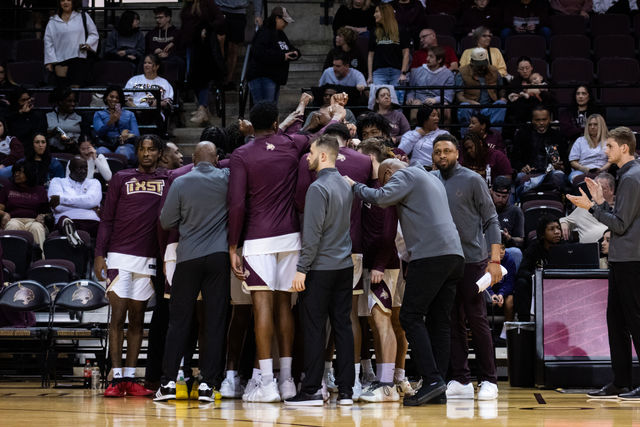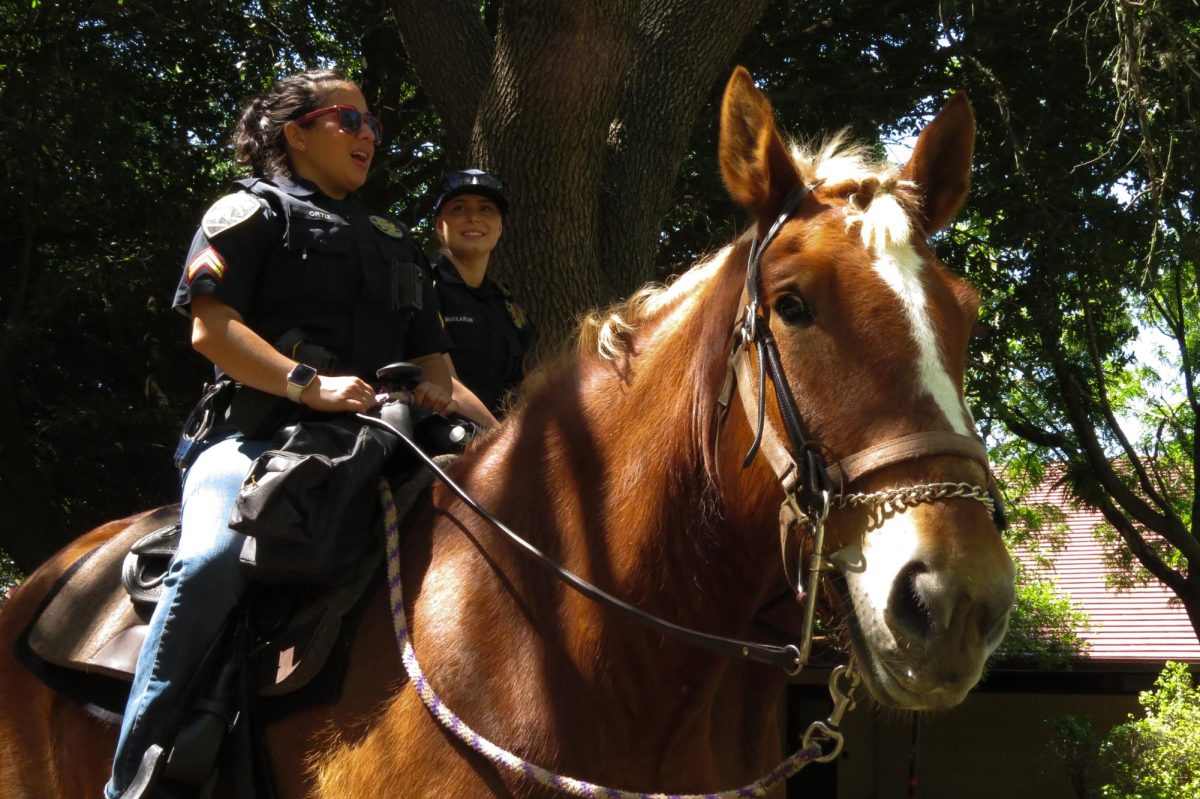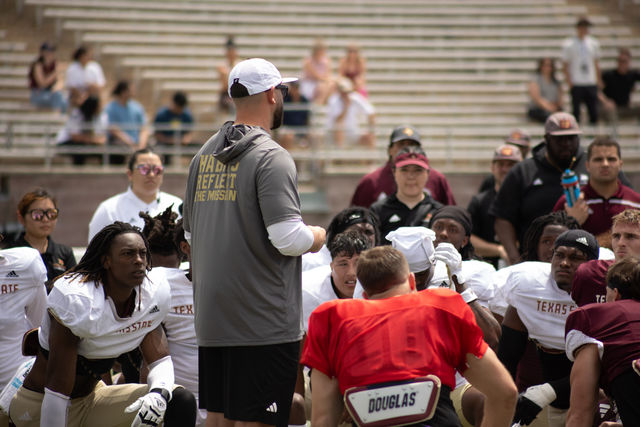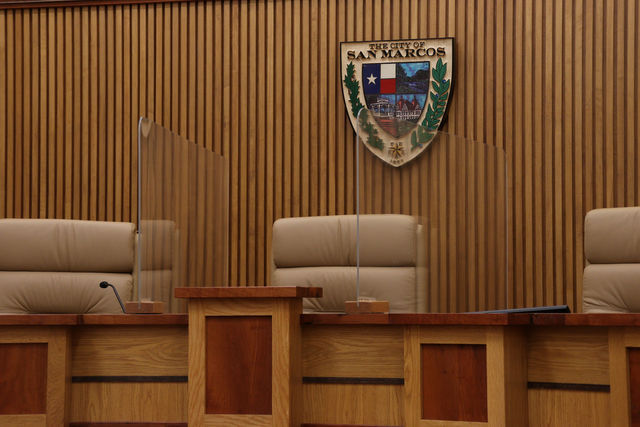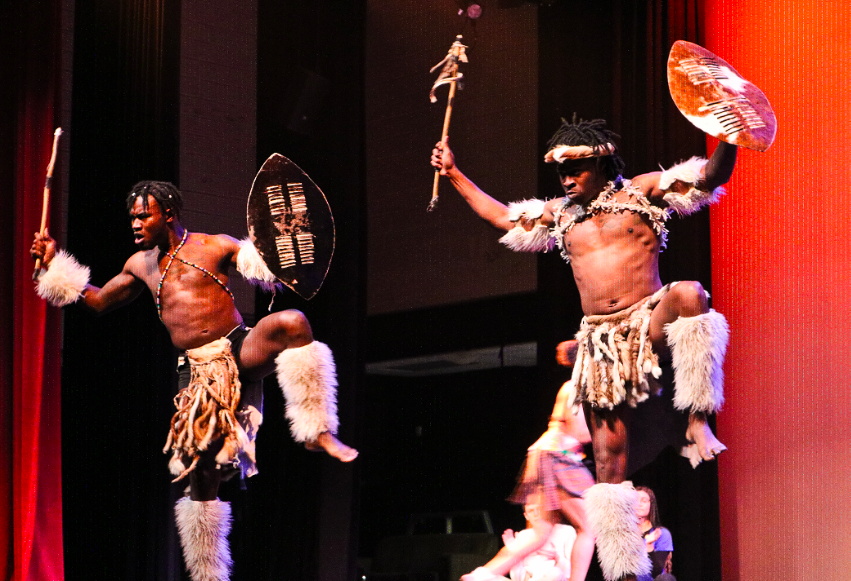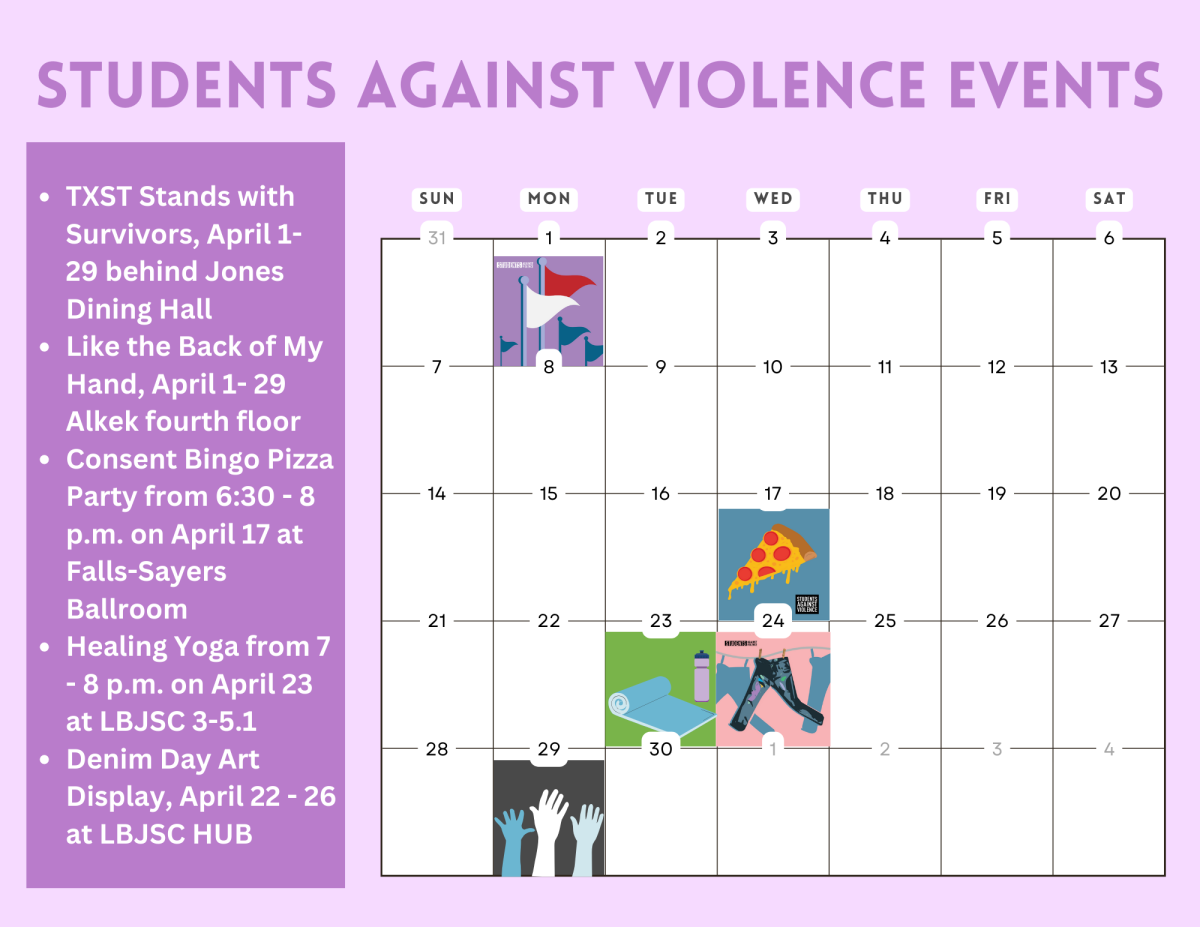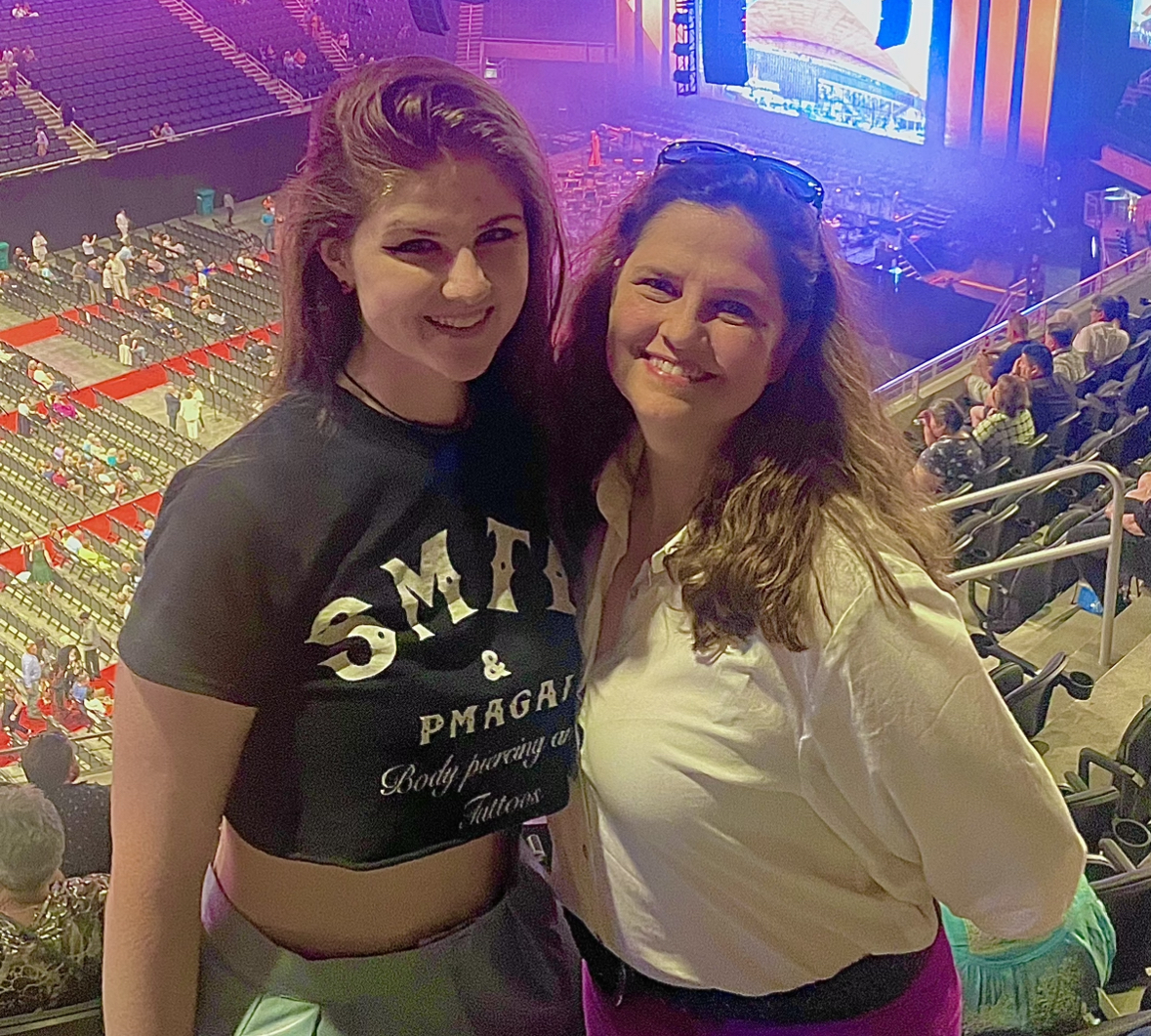While using their bodies to create percussive sounds, humor and storytelling, Step Afrika! brings historical African American culture to life through stepping.
Step Afrika! was founded in 1994. The group is the world’s first professional company dedicated to blending traditional African American dance styles and stepping, a percussive dance practiced by historically African American sororities and fraternities. The team performed from 2-3:30 p.m., Nov. 1, at Evans Auditorium as a part of Diversity Week, hosted by Student Government.
According to Student Government President Corey Benbow, the purpose of Step Afrika! is to preserve, expand and promote an appreciation for stepping through professional performance.
“Their mission is to educate, motivate and inspire young people in and out of school through the arts and educational programs, emphasizing the stepping core values of teamwork, commitment and discipline,” Benbow said.
Step Afrika! artist Deatrice Clark said the performance tells traditional African American stories through their percussive dancing and stepping.
“Percussive means to strike,” Clark said. “If I hit my leg or anything else, I am hitting it to make a sound to make music. Stepping is percussive because we are using our bodies as actual instruments.”
The group educated its audience on an old type of percussive movement called the Gumboot dance. The dance uses “Gumboots,” which are a type of boot worn by African mine workers. Clark said the Gumboot dance is an example of percussive communication for African people.
“When the ‘Gumbooters’ were in the mines, they came from all different parts of Africa and did not all know the same language,” Clark said. “They created a language percussively with their boots so they could communicate with each other. If somebody is hungry or needs a break, they would make up a certain rhythm to (communicate that).”
During the performance, the group encouraged participation as they included the audience in clapping to the beat and brought students onstage to teach them basic stepping moves.
Keuna Webster, political science junior, is a member of Sigma Gamma Rho sorority at Texas State. She said the sorority utilizes stepping to express themselves and she wanted to attend the performance to support Step Afrika!.
“(Sigma Gamma Rho) has our own different calls and hand signs unique to our organization,” Webster said.
Including the educational aspect from the performance and the cultural significance of stepping showcased, Benbow said he thinks bringing in Step Afrika! to perform benefits the student body when discussing diversity, inclusion and cultural appreciation.
“I hope people will gain an entirely new appreciation for the stepping that goes on historically within African American fraternities and sororities,” Benbow said.
Each year, Step Afrika! puts on a 50-city tour where the company travels to colleges and theaters to perform.
“We are always excited to come to a new school and share our art form (of stepping) with people who have may have never seen it before,” Clark said. “(Step Afrika!) is an amazing place to be, to share and to be a part of.”
Kaitlynn Martin is a member of Alpha Kappa Alpha sorority, an organization that also takes part in the stepping tradition. Martin said she thinks Step Afrika!’s performance shows Texas State is advancing in cultural awareness.
“It is just another step in the right way,” Martin said. “We can claim we are a diverse student body, but we have a good way to go to include and make sure everybody feels as if they are comfortable with their diversity.”
Benbow said by the end of the performance and Diversity Week, he hopes people will take away the significance of celebrating diversity and each other’s uniqueness.
“I’m hoping people will be very involved in living in their truth, being their true self, celebrating themselves and celebrating others,” Benbow said.

